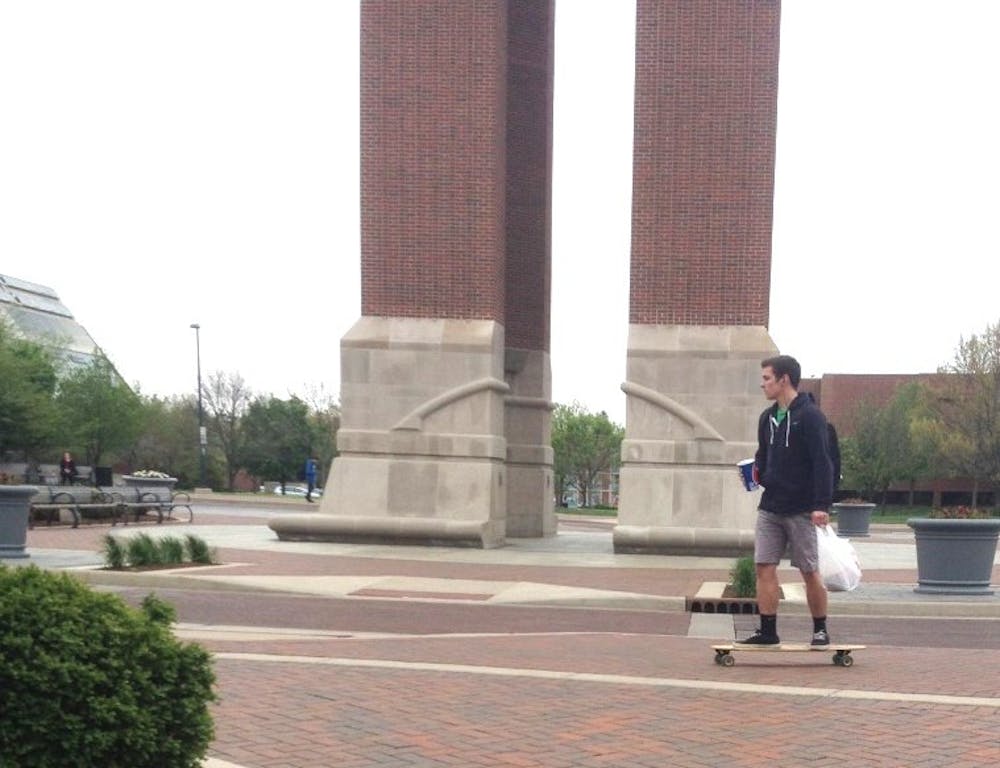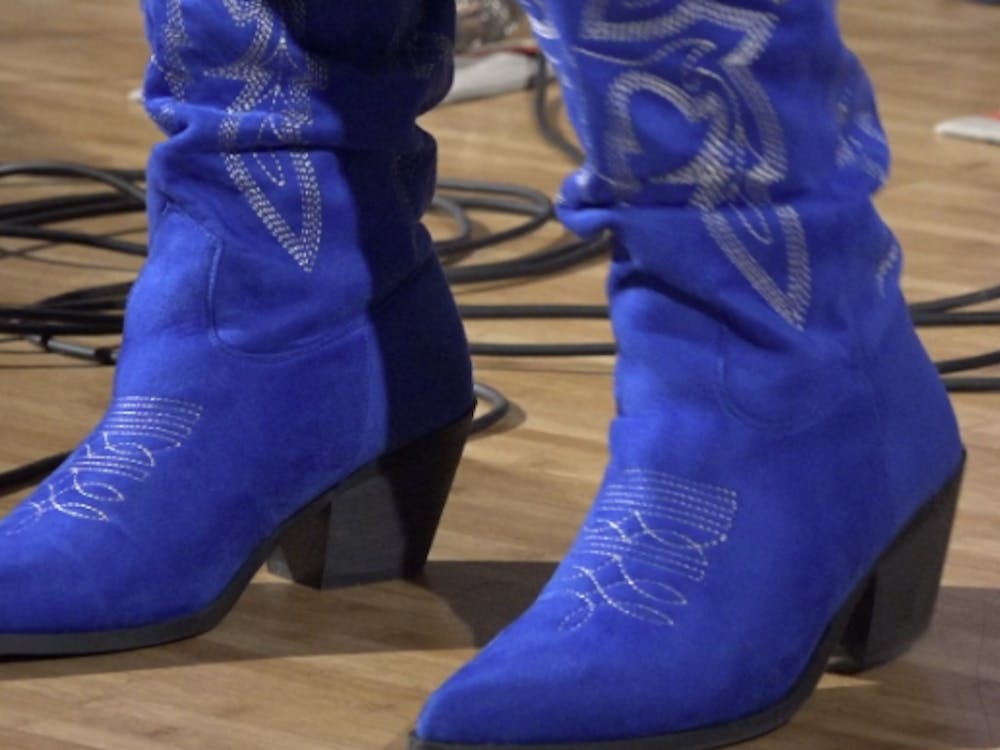Did you know?
Skateboarding originated in the early 1950s, when surfers in California wanted something to do when the waves were flat, according to skateboardingmagazine.com. The origin of the first skateboard has never been proven as it seems to have been the spontaneous invention of multiple people. Wooden boards with roller skate wheels slapped on the bottom were the makings of the original boards when these pioneers took to the streets.
Some students are still surprised to know that skateboarding is prohibited on campus, even though there are signs all across campus, and it's stated within the student handbook and by the Ball State University Department of Public Safety.
“I personally never knew that skateboarding and longboarding was prohibited on campus,” said Dalton Williams, a sophomore telecommunications major.
But that is the rule.
The use of skateboards is prohibited on university owned or controlled property, according to the Ball State University Motor Vehicle Regulations and Parking Procedures Department of Public Safety. Violators will be cited and may have the skateboard impounded until the fine is paid.
Fines of skateboarding are $30 within 10 days of the citation and $40 after those 10 days.
Even with citations and fines, students say the rule is not taken seriously across campus.
“If they did, we would see less and less people actually doing it," Williams said.
As for the reason behind this rule, University Police Department Chief Jim Duckham said it is a safety concern.
“UPD takes the safety of Ball State community very seriously,” Duckham said.
Williams argued that bicycling, which is not prohibited, should be looked at as a safety concern.
“Bicyclists should have to abide by the same restriction as there are the same, if not more, hazards with bike riders,” Williams said.
Kelsey Smith, a sophomore art education major, agreed.
“The point of these rules is for safety and to not tear up the sidewalks, but then again, we have crazy bikers and sometimes cars on the sidewalks,” Smith said. “I think longboarders or skateboarders are the least of our worries if students just watch out and be respectful of each other.”
Even though he has known the rule for years, Lavonte Pugh, a sophomore and telecommunications major, said he still skateboards.
“As experience has taught me, that rule seems to have been unofficially ignored by staff, faculty and the UPD,” Pugh said. “I have never once had anything said to me about skateboarding except for a casual and friendly wave from an officer driving by.”
Pugh said he believes as long as skaters are not destroying any Ball State property by doing things like tricks, there is no real problem.
“Nearly all of the skaters on campus are doing no harm to anyone or anything, especially property,” Pugh said. “I think the UPD knows that and, whether officially or not, choose to disregard that rule in favor of the harmlessness of skating.”
However, Duckham said UPD does work to enforce the rule and said he personally has stopped students on campus for skateboarding.
“UPD officers can warn students or issue them a citation,” Duckham said. “UPD looks to educate students on the Student Code and University policies in an effort to create a safe campus environment.”
Duckham said he thinks skateboarding is still happening on campus because students might not even realize it is prohibited.
“Often times just reminding the student of the skateboarding prohibition is enough,” Duckham said.
|
Did you know? Skateboarding originated in the early 1950s, when surfers in California wanted something to do when the waves were flat, according to skateboardingmagazine.com. The origin of the first skateboard has never been proven as it seems to have been the spontaneous invention of multiple people. Wooden boards with roller skate wheels slapped on the bottom were the makings of the original boards when these pioneers took to the streets. |





